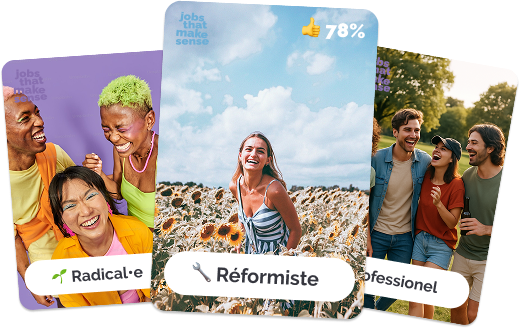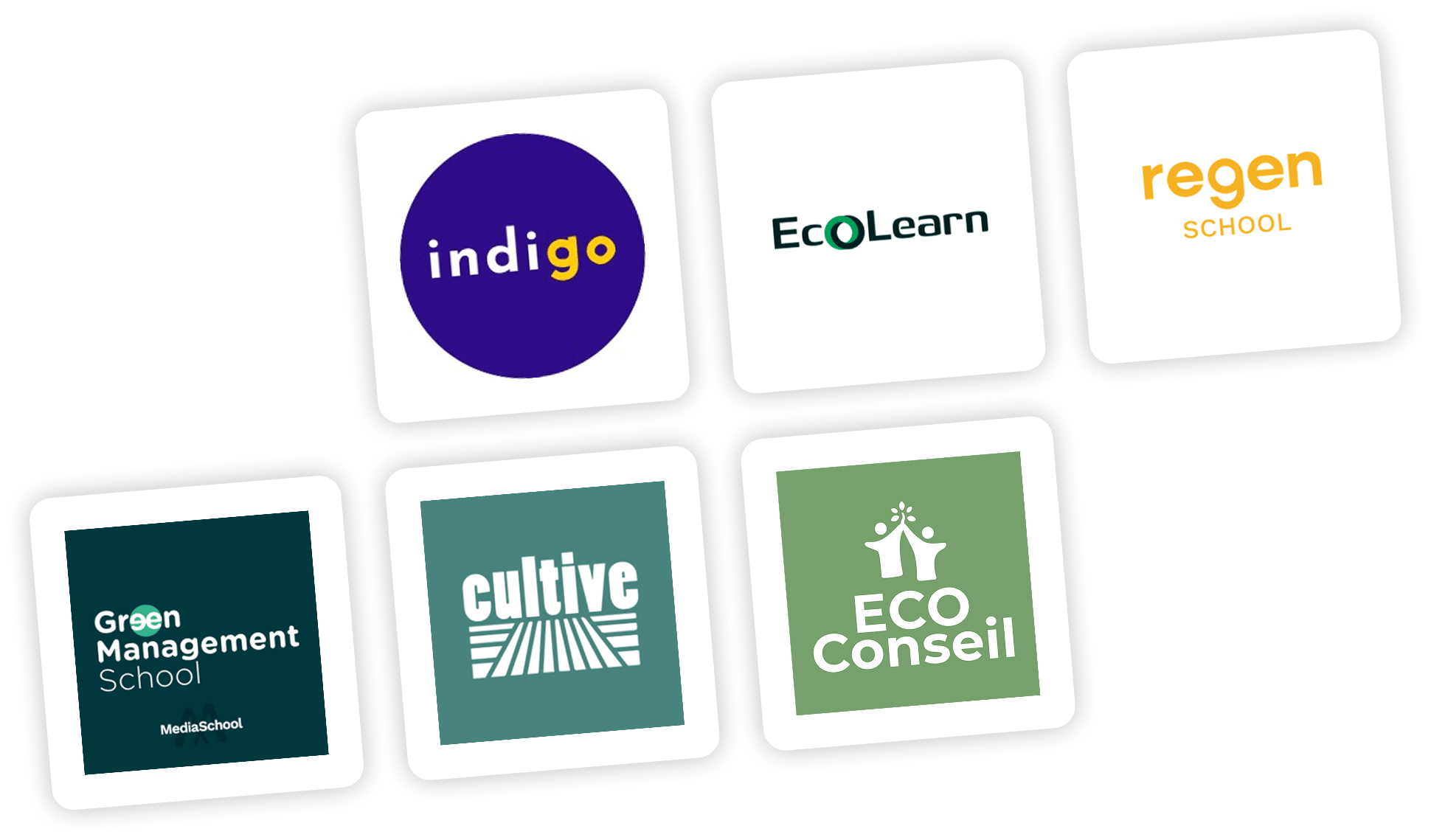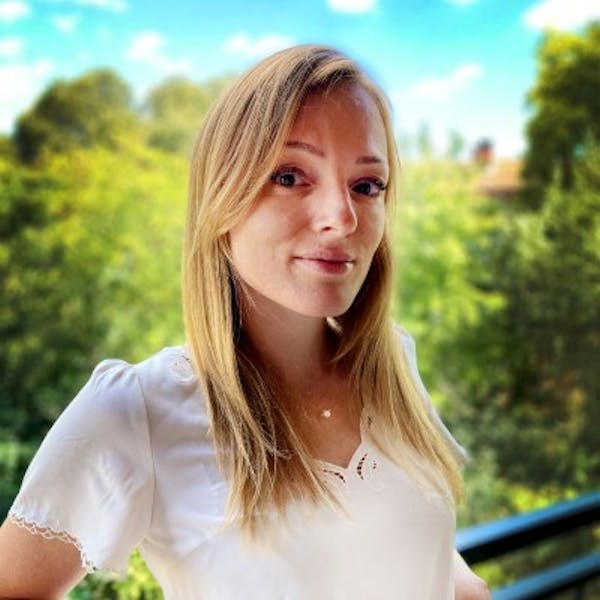5 possible ways to align your work with your values
There was a time when the grail was to join a big company, if possible with a nice tower in a business district, to climb the ladder and make a lot of money.
But that was before.
In the last few years, we've seen career aspirations evolve. The great challenge of the century on social and environmental issues and the COVID have largely contributed to the acceleration of changes in workers' expectations and in their relationship to work.
As a result, we can observe mass phenomena such as the great resignation (with Beyoncé's Break my soul playing loudly in our ears), the silent resignation and in 2023 the Conscious quitting. This phenomenon consists in leaving one's company or not joining it if it does not respect our values, and in particular our concerns about climate issues. An opinion poll was conducted on this subject and two interesting figures emerged:
- Out of the 4000 people questioned, 50% of them would consider leaving their employer if its values were too different from their own.
- And still on the same sample, a third of the people questioned declared having already left their company for such reasons.
And it looks like this is just the beginning!
So no, you're not the only one who can't stand it anymore:
- The great speeches that advocate the hyper growth of your company
- The excessive greenwashing
Questionable management practices!
The question you must certainly ask yourself is: So, how can I align my job with my values without doing a PhD in sustainable development?
And it's not one, not two, not three, not four, but five ways that we propose to you to envisage a more exciting professional future without leaving to raise goats in the Larzac!
Because leaving, yes, but to do what?
Become the troublemaker of your company
Finally, why absolutely leave, you could also play the role of infiltrator by raising awareness in your professional environment or by setting an example.
It can start by simply being a good colleague, and for some, a benevolent and ethical manager, by applying the good practices of non-violent communication or by mastering the art of feedback. We tend to want to train on technical skills but interpersonal skills are crucial in companies. You can look at Formapart or Bienvenue en Transition for example, which offers resources and inspiring paths on these subjects.
Why not also propose collective actions? At the level of your company or your department, you can propose to set up actions of skills sponsorship or volunteering with ProBonoLab or Vendredi. Alternatively, you can become a makesense volunteer by putting your skills to work on impact projects by becoming a mentor or by becoming a mobilizer for citizen engagement programs with re_action.
Finally, you can also increase your skills in your own business to bring a responsible dimension. Purchasing, Digital, Communication, Marketing etc... Whatever your function, you can inform yourself and even train yourself to reduce the negative externalities of your activity and bring a little touch of sobriety and ethics.
Becoming a CSR leader
If you really want to improve your skills in sustainable development and make a difference at the company level, there is also the possibility to improve your skills in CSR strategy. The technical side is more important, especially on the measurement of carbon impact, but it can be a very interesting path if you sharpen your critical sense to avoid being used for Green washing or Purpose Washing purposes. There are many structures to get trained, such as Edeni, which offers several programs.
There is also the possibility of training for the BCorp label. This label certifies companies with a positive societal and environmental impact. Currently, more than 2,600 companies are certified in over 60 countries and 150 different sectors.
Become an employee in the impact sector
If you feel fulfilled as an employee, why not offer your skills to an impact organization? Associations, foundations, cooperatives, social startups, NGOs... All these companies also need talent to meet their development challenges.
To start your monitoring of opportunities, you can look at the positive impact job offers on jobs_that_makesense or to recruitment agencies, such as Omeva specialized in positive impact jobs.
Launch an entrepreneurial adventure that makes sense
You've been thinking for a while about a genius idea to solve an ecological or social problem? You feel you have the entrepreneurial spirit?
You can decide to launch yourself as a social entrepreneur!
Going through a support program to go from the idea to the project and then to the company can help you avoid getting stuck in the carpet when you launch. Several impact incubators exist in France, such as those offered by La Ruche or makesense.
Become a Freelance For Good
And why not link MEANING and FREEDOM?
In France, as elsewhere, the status of freelance is becoming more and more popular. Since 2009, freelancing has increased by 92% according to a study conducted by Malt and Boston Consulting Group (BCG). Yes, that's huge.
According to the same study, freelancers are going freelance for two reasons: The need for freedom and the desire to CHOOSE their clients.
This status is therefore a possible way to reconnect with the meaning. You stay on your existing skills, but you offer them to structures that work for the common good.
More and more freelancers are doing it, whatever their profile: web developers, communicators, project managers or marketing experts. It allows them to do the job they love, at the service of virtuous projects.
This is the case for Camille Poirier, Social Manager, Julien Nora, No Code Builder or Anthony Boudet, CSR and Responsible Marketing Consultant. If you want to be inspired by their careers, you can have a look at their video interviews here.
After that, you can't improvise! Being a freelancer is above all being an entrepreneur or more precisely a solopreneur or solopreneuress.
Here are 3 tips to get started:
Confront the reality of Freelance For Good.
To get out of utopias and avoid disenchantment, the best is to exchange with freelancers who have already launched in the For Good and to ask them about their daily life: work rhythm, type of missions, finances! Don't hesitate to get in touch with committed freelancers for a transparent exchange. And more generally, whether before or throughout your freelance life, a good practice is to play it collective. One of the pain points of freelancers is isolation, so don't hesitate to join a freelance community and/or a co-working near your home.
Set a course
Before you start, it is important to set clear, ambitious and realistic goals. Freelance does not mean Freestyle.
It is therefore important to be clear about your Why and How:
- Your Why: The idea is to take stock of your deepest aspirations and take the time to map out your values, what you like to do and what you are good at and finally define your vision of impact.
- Its How: here you can ask yourself about the ideal work modalities for you and about the financial issues. How many days do you want to work? How much do you need to earn to support yourself properly? And then, what could be the ADR (average daily rate) that you should apply during your performances?
Refine your target and value proposition
Once you are determined to launch your business and have set your course, you will need to refine two variables that are essential to making your business sustainable and exciting.
On the one hand, your target, which must correspond to your vision of impact: which causes are important to you, in which types of structures do you think you can thrive? Do you want to help impact actors to serve their causes or accompany organizations in their transition?
On the other hand, your value proposition must be clear, correspond to your area of genius but also to the market need!
If you are interested in freelancing for good, Social Declik can help you on your way. Find out how our experience Social Declik will give you the keys and the collective you need to become a Freelancer For Good.
And if you already want to have some practical advice to start the adventure, you can download our Starter Pack in PDF.
Finally, if you prefer an individual discussion to take stock of your situation and your aspirations, you can also book a meeting with Charlotte, co-founder of Social Declik, for a 30 minutes video chat.
Take action
👉 Training in the professions of ecological and social transition



